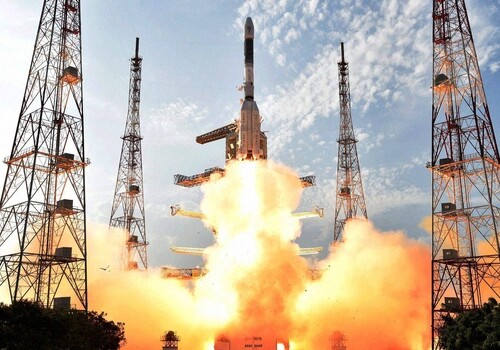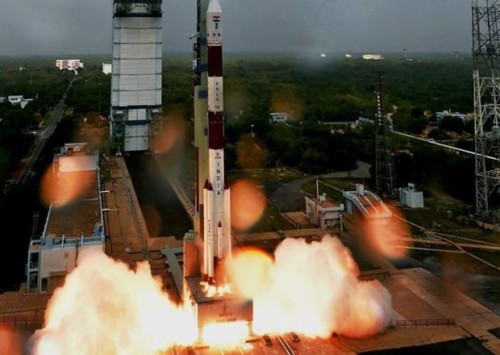India launches first private sector satellite
Ready to leap into the private sector, India is launching its first private sector satellite that will be replacing a malfunctioning navigation satellite.
India is ready to launch its first private-sector built navigation satellite from Sriharikota, a leading rocket launch centre in Andhra Pradesh, a south-eastern Indian state. The satellite, Indian Regional Satellite Navigational System-1H or IRNSS – 1H will replace one of NavIC’s (Navigation with Indian constellation) seven satellites that is malfunctioning. Weighing 1425 kg, the satellite will be launched using Polar Satellite Launch Vehicle (PSLV), the third generation launch vehicle of India. This will be PSLV’s 41st flight.
The satellite has been built by a consortium led by Alpha Design Technologies, a defence equipment supplier from Bengaluru. It was developed over a period of eight months by a team of 70 scientists from the Indian Space Research Organisation (ISRO).
This venture with the private sector is India’s first step towards becoming one of the key suppliers of commercial satellites. More ventures with the private sector are being looked at for future. Earlier, in February this year, when ISRO had launched 104 satellites in one go, 101 belonged to other nations.
The fabrication of these satellites requires high precision that costs huge money, but still have no room for any repair once launched. A satellite can remain functional for up to 10 years after its launch.
India is venturing more towards the private sector to also cater to its own needs. The nation currently requires 17 satellites a year for varied purposes, including communication, weather prediction and earth observation and military use.
This eighth IRNSS satellite will be the replacement for IRNSS-1A, as its atomic clocks went out of order. The atomic clocks in the new satellite are modified versions of the deficient original clocks provided by an European supplier under a $4 million euro deal. Similar problems have also been reported for three similar clocks used in satellites for the European Galileo system. The PSLV rocket will sling the IRNSS-1H into a Sub-Geosynchronous Transfer Orbit, a leading Indian daily reported.
“The IRNSS positioning system is intended to provide two services — Standard Positioning Service (SPS) for general users and a Restricted Service (RS), which is an encrypted service provided only for authorised users like the defence forces,” the daily said.
The launch is reported to take place from the second launch pad of Satish Dhawan Space Centre (SDSC) SHAR.













